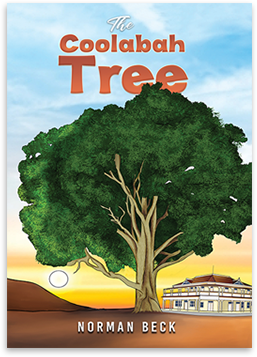
WRITING A NOVEL IN RETIREMENT PART 1
With the publication of my first novel, The Coolabah
Tree, many friends and colleagues from my past corporate life have come forward
wanting to know how I approached the writing process. They are enthusiastic
about doing the same.
Comments like:
‘Congratulations. How did you do it? I wish I could’.’
‘Wow, that’s fantastic. Can you tell me what to do?’
‘Good on you, Norm. One day I’d like to write a memoir
or novel but don’t think I have the patience.’
And similar. You get the picture.
So, I’ve decided to start a blog in maybe eight to ten
parts to help others achieve what is a lifetime dream for many.
I’m not claiming to be an expert. But I can claim to
have worked through the pitfalls and found an approach that worked for me.
Let’s see how we go. I’ll approach it from the
perspective that anyone can do it with the right mindset, creative spark, and
determination.
To start with:
We’ve all heard negative comments like, ‘only good
writers should write’ or ‘if you have a desire to write a novel late in life,
shove the aspiration back in the bottle and lock the lid,’ what stupid arrogance.
Writing a novel should be approached like any other
creative endeavor, similar to learning the guitar, painting, or photography. It
takes time. We don’t expect someone who paints to be the next Van Gogh, yet
with writing, there is the heavy expectation that it must be the next ‘great
American/Australian masterpiece.’ Approach it as a positive, creative challenge
where you’ll learn a lot about yourself.
A guitarist won’t play well if their arms and hands
tense up, an artist won’t paint if they poke and prod at the canvass.
Similarly, you won’t write well unless there is freedom in your thinking and
not tense up mentally over the writing process.
The first step is to have a positive attitude and not
hook into the negativity around writing. It’s a matter of saying something to
yourself like, ‘I want to write as a creative outlet. I think if I keep working
at it, I can turn it into something.’ Or ‘Damn it, I’m too old to care what
others think. I’m just going to start and see if I can achieve my dream.’
Changing to a positive mindset is fundamental to good
writing. We all go through times when we think we can’t write, don’t like what
we have written, or feel it’s going nowhere. Unless there is the fundamental
belief that it’s worth persevering and that the writing will improve, it won’t
flow freely. Then it’s too easy to get despondent and give up before we start.
So writing is a creative undertaking that anyone can do
if that is the desire. I’m not saying it’s easy; it’s not. For me, the most
challenging endeavour I’ve undertaken. But it’s essential to start with the
right attitude.
I guess, looked at from a positive psychology
perspective, this part is giving yourself permission.
Hopefully, when holding a copy of your book, you’ll
appreciate how critical this step was.
I’ll post this blog on my Amazon Author’s page and
LinkedIn. I’m aiming to update around once a week. Next time I’ll discuss the
process of how I started and some valuable resources I found.
For those interested, let’s get started. Feedback welcome,
and there will be an update next week.
Regards Norm Beck
Post Views : 261